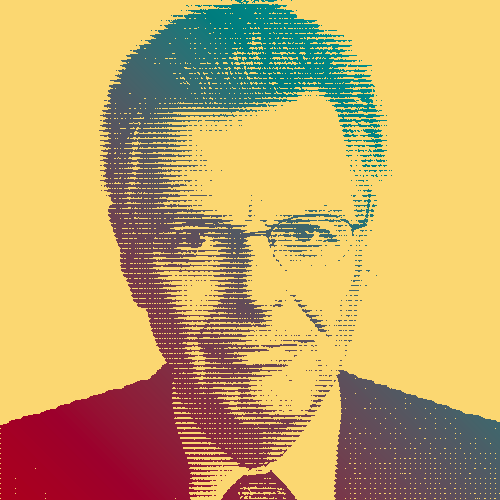Although his quintessentially academic demeanor does not often afford him the spotlight, Myron Scholes’s economic research has had a profound impact on the global economy. Derivatives traders all around the world rely on the work he published with two colleagues a half-century ago.
An early focus on money
Scholes began thinking about economics long before it was on most people’s radar. Looking back on his childhood, he identifies key moments in his life that heightened his appreciation for the way the world of money operates.
His first “exposure to agency and contracting problems” occurred when he saw his mother abandon a business she’d started with her uncle due to a dispute with other family members after the uncle died. His mother, who died when he was 16, nevertheless encouraged Scholes and his brother to pursue business opportunities.
At the age of 16, he developed a condition that hindered his eyesight, making it hard to read for extended periods of time. He credits the disability, which was resolved a decade later with surgery, with helping him to become a good listener as well as “to think abstractly and to conceptualize the solution to problems.”
Above all else, he loved to play around with money. He traded with friends, gambled, was always treasurer of clubs, and even began investing in stocks as early as high school through an account his mother had set up for him.
Evaluating options
Scholes pursued his interest in economics in college and later as a graduate student at the University of Chicago, which at the time was a hotbed for controversial new ideas on economics.
After completing his Ph.D. he got a job as a professor at the MIT School of Business, where he began collaborating with a group of fellow economists, notably Robert Merton and Fischer Black. The three were interested in figuring out a way to price options, a financial tool that has existed in some form for millennia but which at the time was not commonly traded.
“I never expected the widespread use of the model. It has been very gratifying.”
Building on the work of Louis Bachelier, Paul Lévy and other mathematicians who had observed a certain amount of randomness in price changes, the three economists developed a partial differential equation that calculates the expected profit a trader will make on an option.
The Scholes-Merton-Black model coincided almost precisely with the opening of the Chicago Exchange, the world’s first exchange devoted to options trading.
The model has become an article of faith in options trading and helped to establish confidence in what grew to be a multitrillion-dollar market.
Although Scholes’ brilliance offered a pathway to prosperity for many, himself included, he was not invincible. His own hedge fund, Long-Term Capital Management, suffered gigantic losses in 1997-8, forcing the firm to seek a bailout from numerous financial institutions.
Key Dates
-
1973
The Black-Scholes formula
Scholes and Fischer Black publish the Black-Scholes formula on options pricing.
-
1997
Nobel Prize
Scholes is awarded the Nobel Prize in economics along with Robert Merton for their work on options pricing.
-
1998
Long-Term Capital Management Dissolution
Scholes’ hedge fund, Long-Term Capital Management, incurs $4.6 billion of losses in less than four months as a result of the Asian financial crisis of 1997 and the Russian financial crisis of 1998, prompting a $3.6 billion recapitalization plan orchestrated by over a dozen major financial institutions. Two years later, the fund dissolved.




